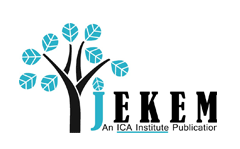Abstract
This paper explores the dialectic between speech genres and group identity. It argues that certain ideologies get associated with speech genres, like adda, which inextricably link them to particular groups and situations. Adda is a kind of informal social talk in Bengali, among friends and colleagues, but its content is always of intellectual significance, addressing issues such as local/global politics, art, literature, and music. Casual conversations and gossip are common in many societies, but the creative performance of this genre by Bengali elites made adda a marker of an urban middle-class identity, especially in response to British Imperialism. Currently in Indian public discourse adda has become synonymous with Bengaliness, so much so that tourism brochures selling Calcutta tout that visiting famous cafés or joints where adda is still practiced—even participation—is a must before leaving Calcutta. In this paper I use my ethnography of adda in Calcutta to establish that this speech genre is a discursive site of cultural identity production and a means of coping with globalization. I demonstrate that the combination of malleability of content and purposefulness of style has caused the elite practice adda to be appropriated by non-elites. It also makes adda a tool for invoking the global in the local identity formation.
DOI
10.7885/1946-651X.1062
